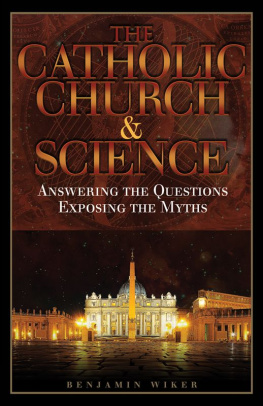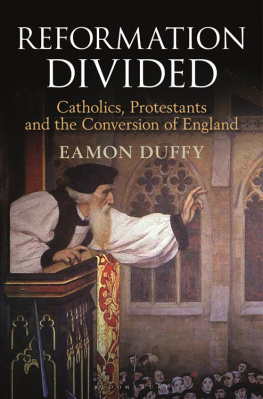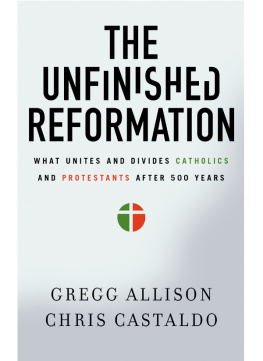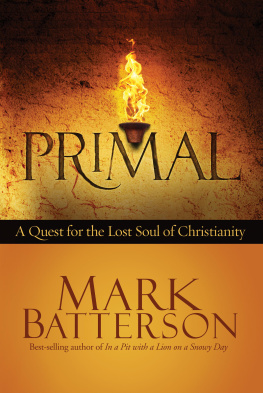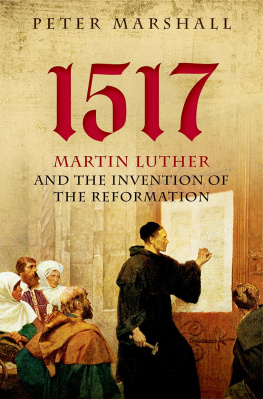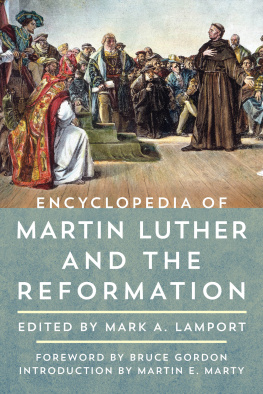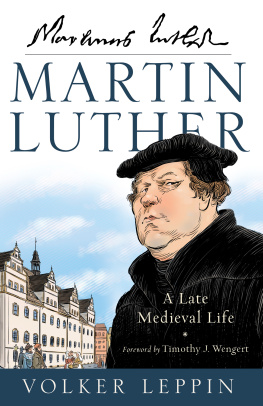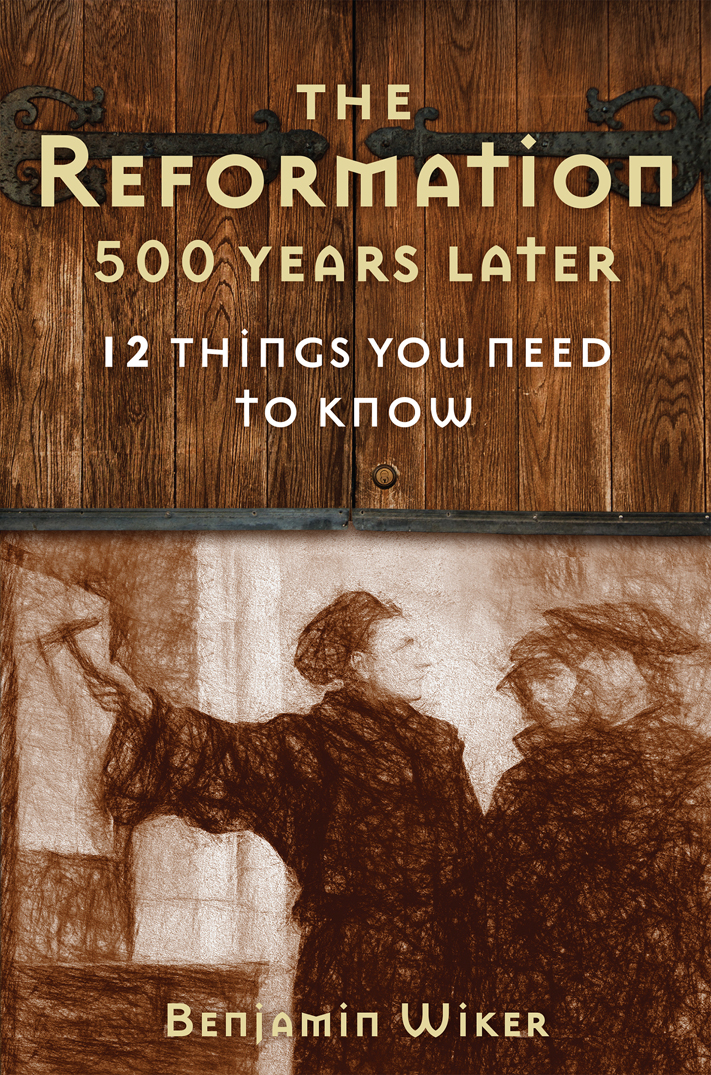Praise for
THE REFORMATION 500 YEARS LATER
Benjamin Wiker has written a highly compelling, culturally rich book, studded with historical ironies. Yes, there is the power of ideas themselves and they have consequences, but how they came to power and in whose interests are also indispensable parts of the story. Wiker reveals the way the secular revolution used the Reformation to further its aim of extinguishing Catholics and Protestants alike. Without gainsaying the profound differences between Protestantism and Catholicism, he also shows the grounds on which they urgently need to come together so that Christianity itself can survive the onslaughts against it from the rabid secularism and militant Islam of our times.
Robert R. Reilly, special assistant to Ronald Reagan and author of The Closing of the Muslim Mind and Making Gay Okay
While simplicity is often sought to calm the mind, it rarely offers an accurate picture of real life. Dr. Ben Wiker complicates easy and simplistic understandings of the five-hundred-year-old Reformation with facts about the richly complicated and interwoven factors underlying that history. Important factors of early nationalism, Renaissance paganism and atheism, Turkish Islamic imperialism, the saintly and sinful popes, and the origins of ideas like Scripture alone and the supremacy of the state over the church interacted and brought much havoc. Wiker tells this story resolutely, honestly, and well. This is a great read for the five-hundredth anniversary of the Reformation.
Fr. Mitch Pacwa, S.J., founder and president of Ignatius Productions and EWTN television and radio host
I first became aware of Ben Wiker when, some years ago, I was browsing the new releases at a Barnes & Noble. Seeing his cleverly titled romp 10 Books That Screwed Up the World, I picked it up and thumbed its pages expecting to find that his list included all the books that I held dear, the Holy Bible chief among them. I instead found something quite different. Indeed, had I scribbled a list of odious books on a napkin and then compared it to Wikers table of contents, I might have scored 7/10. Skimming a page or two, I decided to buy the book and hurried home to read it. There I discovered a scholar with a first-rate mind whose often witty, always accessible prose made for delightful reading.
These days I know the man behind the book. Ben is not only a colleague-at-large, he is my dear friend. In The Reformation 500 Years Later he has written his best, and certainly his timeliest, book. It is neither an air-brushed account of Catholic Church history, nor is it an assault on events celebrated by Protestants in this, the quincentennial of the Protestant Reformation. It is, rather, an honest Catholics appraisal of the factors contributing to that watershed event and the ramifications of it. More importantly, Ben has not written a history in the traditional sense; he has written a book on current events that looks in the rearview mirror for clues. The Reformation 500 Years Later will be enjoyed by both Catholics and Protestants alike and, if Ben succeeds in his noble aim, they will find a common cause.
Larry Taunton, founder and executive director of Fixed Point Foundation and author of The Grace Effect


Copyright 2017 by Benjamin Wiker
All rights reserved. No part of this publication may be reproduced or transmitted in any form or by any means electronic or mechanical, including photocopy, recording, or any information storage and retrieval system now known or to be invented, without permission in writing from the publisher, except by a reviewer who wishes to quote brief passages in connection with a review written for inclusion in a magazine, newspaper, website, or broadcast.
Regnery History is a trademark of Salem Communications Holding Corporation; Regnery is a registered trademark of Salem Communications Holding Corporation
Scriptures taken from the Holy Bible, New International Version, NIV. Copyright 1973, 1978, 1984, 2011 by Biblica, Inc. Used by permission of Zondervan. All rights reserved worldwide. www.Zondervan.com. The NIV and New International Version are trademarks registered in the United States Patent and Trademark Office by Biblica, Inc.
Cataloging-in-Publication data on file with the Library of Congress
e-book ISBN 978-1-62157-706-5
Published in the United States by
Regnery History
An imprint of Regnery Publishing
A Division of Salem Media Group
300 New Jersey Ave NW
Washington, DC 20001
www.RegneryHistory.com
Manufactured in the United States of America
10 9 8 7 6 5 4 3 2 1
Books are available in quantity for promotional or premium use. For information on discounts and terms, please visit our website: www.Regnery.com.
Distributed to the trade by
Perseus Distribution
www.perseusdistribution.com
To my great Evangelical friend in Christ,
Larry Taunton, whose Christian courage, intelligence,
and faith are such a deep inspiration
CONTENTS
Table of Contents
Guide
T he first thing to understand about the Reformation is that after five hundred years it is coming to an end. If we dont understand that essential fact, then well be confused about its beginning, which commenced when Martin Luther allegedly nailed his Ninety-Five Theses to the Wittenberg Castle Church door on October 31, 1517. (He actually didnt nail them but mailed them, as well soon enough discover.)
The Reformation is coming to an end because Christians are focused increasingly on what unites them, largely because of mounting persecution. J. R. R. Tolkiens classic, The Lord of the Rings, offers a good analogy here. The dwarves and elves have been fighting with each other for generations. Faced with a common foe bent on destroying them both (Sauron and his army of orcs), the dwarves and elves form a deep friendship forged in the battles to keep Middle Earth from falling to the powers of darkness.
I will not say who are the elves and who are the dwarvesthe fictional analogy is not that exact. (Although, when I, a Catholic, get together with my good Evangelical friend Larry Taunton who is well over six feet, its certain that central casting would peg me as the dwarf.) But elves and dwarves aside, its clear that the malignance of those bent on destroying Christians over the last century has created common and commonly admired heroes. What Catholic could not admire the great Lutheran martyr Dietrich Bonhoeffer, who was executed at the concentration camp at Flossenbrg on April 9, 1945? What Protestant could not admire St. Maximilian Kolbe, who was executed at Auschwitz on August 14, 1941?
Many true and deep ecumenical friendships have also been nurtured among those gathered to protest the holocaust of abortion, or to work against the federal governments attempt to impose gay marriage or transgender bathroom policies, or to fight the culture of deaths romance with eugenics and euthanasia, or to wage a common counteroffensive against the increasing vulgarity of a pornographied culture, or to watch with increasing horror as Christians are martyred in ever greater numbers around the globe.
We may think that Christian martyrs are found primarily in the ancient world, during the persecution by the pagan Roman state, but the greatest century for martyrdom is the twentieth, and who knows if the twenty-first might surpass it.


